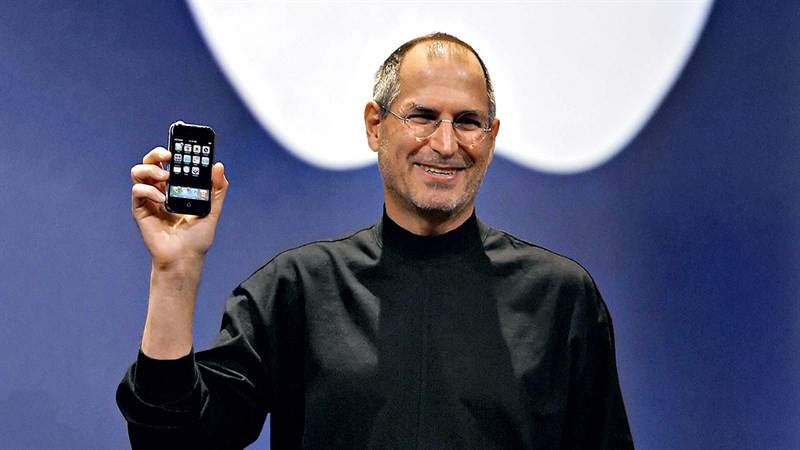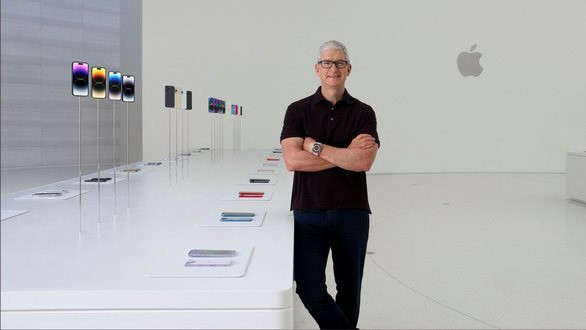Apple’s great business tactic: Selling ‘fear’ under the guise of ‘innovation’
- Tram Ho
At Apple’s Worldwide Developers Conference 2013, Phil Schiller, the company’s vice president of global marketing, proudly introduced the new Mac Pro. However, he said a sentence that surprised everyone: “Can’t be more innovative.”
At that time, Apple still applied the design philosophy of “we know what you want before you know it”. However, the new product was not well received by users.
Two years after Steve Jobs died (he died in 2011), Apple was judged as not knowing what users wanted and their innovation process tended to slow down. Apple’s 2013 and 2014 product launches included an increase in phone sizes and the introduction of smartwatches that have long been in competitors’ product lines. The company didn’t care.

Steve Jobs at an Apple launch event (Image: Internet).
Apple Watch and AirPods: Both are highly profitable complementary products that are great for selling to iPhone users. Business Insider likens them to “chips” and “drinks” that go with hamburgers.
That is the story of the past. Fast forward to September 2022, after watching Apple’s latest product launch event, perhaps many people realize that this giant’s innovation is not only slowing down but also at a high level. , at least for the moment.
Some even call the only innovation that Apple introduces as “boring”.
Apple introduced a series of products with small changes disguised as features. iPhone 14 is not much different from iPhone 13 or iPhone 12. Even with the “Photonic engine” (an algorithmic photography technology, combining hardware with software to improve the quality of photos taken in low light), everyone It is also difficult for people to distinguish photos taken by iPhone 14 from older iPhones.

CEO Tim Cook (Photo: Internet).
According to Business Insider, under the leadership of Tim Cook, Apple has released many products that are not really attractive. Even so, with their inherent reputation, they still sell tens of millions of products around the world. This has helped the company reach a multi-billion dollar valuation – something shareholders appreciate but disappoints with consumers looking for innovation.
Meanwhile, under Steve Jobs, Apple really knew what users wanted before they realized it. Apple sells the desire to own a product as something that can empower consumers. ” Nobody asked for an iPod or an iPhone but Apple knows they need them, or at least want them ,” one person commented.
Today, Apple assumes that users need things they don’t want. For example, the company argues that users need devices that are getting thinner and thinner – unlike Heinz’s way of convincing the market that “thicker” is better when promoting its ketchup products.
Business Insider notes that recently, Apple has begun to sell “fear” rather than innovation. The iPhone now has a satellite connection feature to call for help when the user is stuck in a dangerous situation. In addition, there is a collision detection feature and calls 911 in case the user is in a car accident.

What about Apple Watch? It’s not just for fitness, but its features can save your life. In fact, some people have been saved thanks to this product, but look at how Apple advertises.
For example: If you are worried about an elderly parent, give them an Apple Watch to be notified if they fall or if traveling alone in the desert, the Apple Watch Ultra will emit a scream that can help you get picked up. Rescue found when having an accident. In other words, Apple implies that: ” If you want to survive, buy our products “.
Some die-hard users say that these are not inspirational features but are things most users will almost certainly not need. Business Insider commented that Apple’s new and inspirational innovations like the days of Steve Jobs are probably now a thing of the past that many people regret.
Source: BI, Fast Company
Source : Genk
